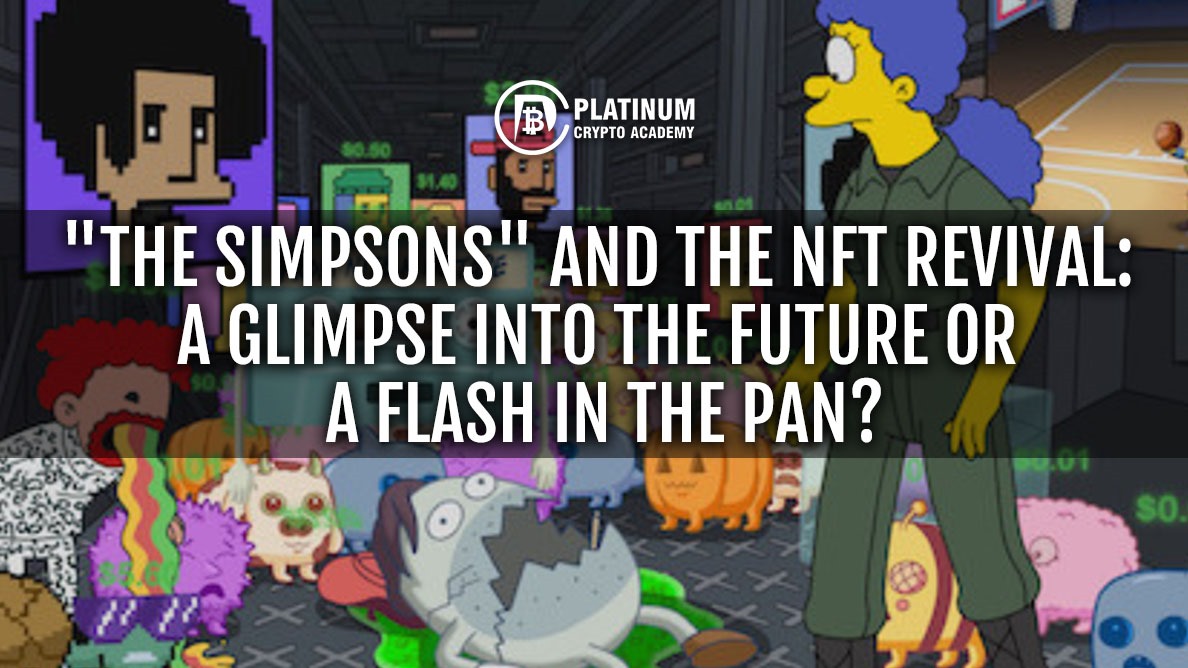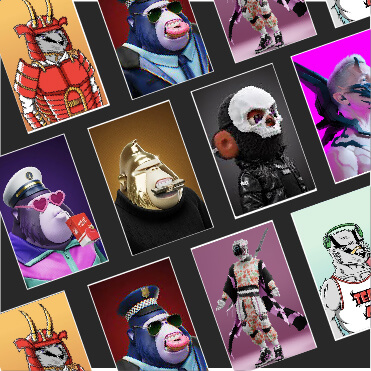In a recent twist that melds pop culture with digital assets, “The Simpsons” aired an episode that has sent ripples through the NFT market. This event has prompted us at Cryptonaire Weekly to delve into the implications of such mainstream exposure for NFTs. Is this a sign of a market revival, or merely a fleeting surge in interest?
A Cultural Phenomenon Meets Digital Innovation
“The Simpsons” has long been a barometer for public sentiment, often predicting trends with uncanny accuracy. By featuring NFTs, the show has not only endorsed the digital asset class but has also presented it to its massive audience in a digestible format. The episode in question didn’t just skim the surface; it explored the nuances of NFTs, from their speculative nature to their potential as a digital collectible.
The Market’s Pulse Quickens
The aftermath of the episode saw a palpable buzz in NFT transactions and social media discussions. This surge is reminiscent of the initial NFT boom, which saw digital artworks selling for millions. But beyond the numbers, there’s a burgeoning curiosity about the role NFTs may play in our digital future. Can they transcend the label of speculative assets to become integral to digital identity and ownership?

NFTs: Beyond the Hype
The recent “Simpsons” episode has undoubtedly rekindled interest in NFTs, but the true measure of this technology’s value lies in its application beyond mere collectability. The NFT landscape is evolving, with innovators seeking to embed these tokens with utility that extends into various sectors.
Environmental concerns have been a significant critique, prompting a shift towards more sustainable blockchain solutions. Meanwhile, the speculative nature of NFTs is being challenged by their potential to revolutionize how we manage digital rights and ownership. For instance, artists can receive royalties automatically through smart contracts, and gamers can truly own in-game assets.
The real estate market is experimenting with NFTs to simplify and secure property transactions. Intellectual property rights for music, literature, and software are being reimagined through NFTs, ensuring creators can monetize their work without intermediaries.
This shift from speculation to utility suggests a maturation of the market. NFTs are becoming a tool for securing digital relationships and transactions in a trustless environment provided by blockchain technology. The question remains: How will this technology hold up against regulatory scrutiny, and can it integrate seamlessly with the existing digital economy?
The Media’s Mighty Influence
The influence of media giants like “The Simpsons” on NFT adoption cannot be overstated. As they introduce complex technologies in relatable narratives, they break down barriers to understanding and acceptance. This episode could very well serve as a catalyst for new adopters looking to explore the space, potentially leading to more innovative use cases for NFTs.
A Crossroads for NFTs
The current state of the NFT market stands at a crossroads. The path it will take may be shaped by the continued interest from both creators and consumers who see value in the blockchain’s promise of provenance and authenticity. Or it could veer towards a niche corner of the digital economy, where only certain applications of NFTs thrive.
Looking Ahead with Caution and Optimism
As we ponder the future of NFTs, we must balance our optimism with a healthy dose of scepticism. The integration of NFTs into mainstream media is a step towards normalization, but it is the subsequent innovation and practical application that will determine their staying power.
In conclusion, while “The Simpsons” episode may have provided the NFT market with a momentary boost, the true testament to their value will be their enduring utility and integration into the fabric of digital transactions. As investors and enthusiasts, we must watch this space with a keen eye, ready to discern between the ephemeral and the revolutionary.
Cryptonaire Weekly invites you to engage with this dialogue, as we continue to explore the expansive realm of NFTs. Will they become the bedrock of a new digital economy, or will they be remembered as a speculative bubble in the vast ocean of cryptocurrency ventures?



